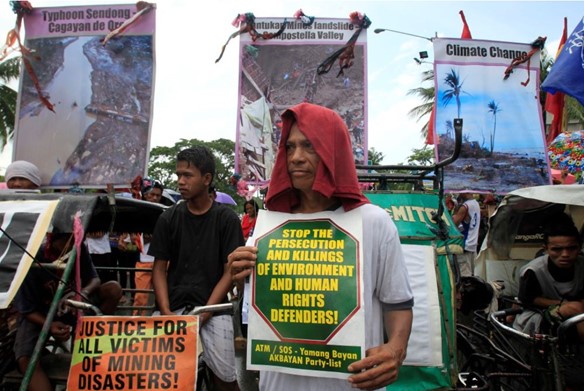
- Human rights must be "at the core" of mining for transition minerals, UN panel says
The UN Panel on Critical Energy Transition Minerals launches principles to guide responsible, fair extraction of minerals for green value chains
A panel of experts convened by the UN Secretary-General has called on governments and industry to prevent human rights abuses in mining for minerals that will play a key role in the world's transition to clean energy.
After five months of discussion, the UN Panel on Critical Energy Transition Minerals launched a report on Wednesday containing a set of seven principles to underpin responsible, fair and sustainable extraction of critical minerals for clean energy supply chains.
"The essence of this report is to inspire care and caution to avoid the mistakes of the past," said South Africa's UN ambassador Nozipho Mxakato-Diseko, who co-chaired the panel. "We've already seen conflict generated by the scramble for these resources, particularly in my continent."
Critical minerals – among them lithium, nickel and rare earth elements – are essential for manufacturing renewable energy technologies including electric vehicles and batteries. At the COP28 UN climate summit, governments agreed to triple renewable energy capacity by 2030 – a goal that is also set to triple demand for minerals by the end of the decade.
But expanding mining at the scale required poses environmental and social risks, particularly for indigenous communities. A 2022 study, which reviewed more than 5,000 critical mineral mining projects, found that more than half were located on or near Indigenous lands.
Meanwhile, a Transition Minerals Tracker run by the nonprofit Business & Human Rights Resource Centre, which documents the human rights implications of mining for key minerals, has recorded 630 allegations of abuses, with 30% of attacks against human rights defenders globally related to the extractive sector, including mining.
Principles for just mining
The principles proposed by the UN panel say that human rights must be "at the core" of mineral value chains. They also urge safeguards for nature, adopting a justice perspective, sharing financial benefits with local communities, investing responsibly, ensuring accountability, and promoting international cooperation.
To enforce the principles, the panel also recommended five actions, among them setting up a high-level advisory group to facilitate dialogue on the issue and a transparency system to shed light on mineral value chains, which could be piloted in "two or three" mineral-producing developing countries.
UN chief António Guterres convened the panel of experts in April, gathering representatives from 25 governments, as well as from the mining industry, finance, Indigenous peoples and civil society.
He said its report identifies ways "to ground the renewables revolution in justice and equity, so that it spurs sustainable development, respects people, protects the environment, and powers prosperity in resource-rich developing countries".
Suneeta Kaimal, CEO of the Natural Resource Governance Institute (NRGI) who participated in the panel's deliberations, said that up to now the mining sector and the international system had failed developing nations in delivering justice and equity, but the panel report could serve as a first step for a "new norm".
"A new paradigm in the mining sector is not going to transform overnight, but this is a very important series of first steps. Developing producer countries have a right to expect that the mining sector can deliver shared benefits, value addition and economic diversification," Kaimal told Climate Home News.
Broader consultation on the principles will be carried out among governments and other groups in the run-up to November's COP29 climate summit in Azerbaijan.
Finding common ground
Both Mxakato-Diseko and Kaimal said the panel had convened a diverse group of experts, who were tasked with finding common ground on important issues such as transparency and benefit-sharing with local communities.
The International Council on Mining and Metals (ICMM), an industry organisation that participated in the panel, issued a statement welcoming parts of the report, but noted it "had hoped and advocated for the Principles to go further in areas where the roles of governments and international bodies are essential to ‘raise the floor' of mining practices".
The ICMM has advocated for the adoption of industry standards on responsible mining, overseen by "an independent, multi-stakeholder governance body" outside the UN system. Civil society groups have criticised this initiative, arguing against "self-regulation" by business.
NRGI's Kaimal noted that the report had missed opportunities for more ambitious language in some parts, including the acknowledgement of Indigenous rights – where it cited only existing agreements – and more specific definitions of a "fair share" of benefits from mining projects and "no-go zones" where they should be avoided.
While the experts sought and built on common ground, the discussions took place in the context of global geopolitics, Kaimal said – "and you can't ignore that elephant in the room".
But, she added, governments now have "a pathway to continue the dialogue". "Bringing the recommended actions to life will be an important part of the next steps," she said.
(Reporting by Sebastián Rodríguez, editing by Megan Rowling)
Source: Climate Change News – URL: https://www.climatechangenews.com/2024/09/12/human-rights-must-be-at-the-core-of-mining-for-transition-minerals-un-panel-says/